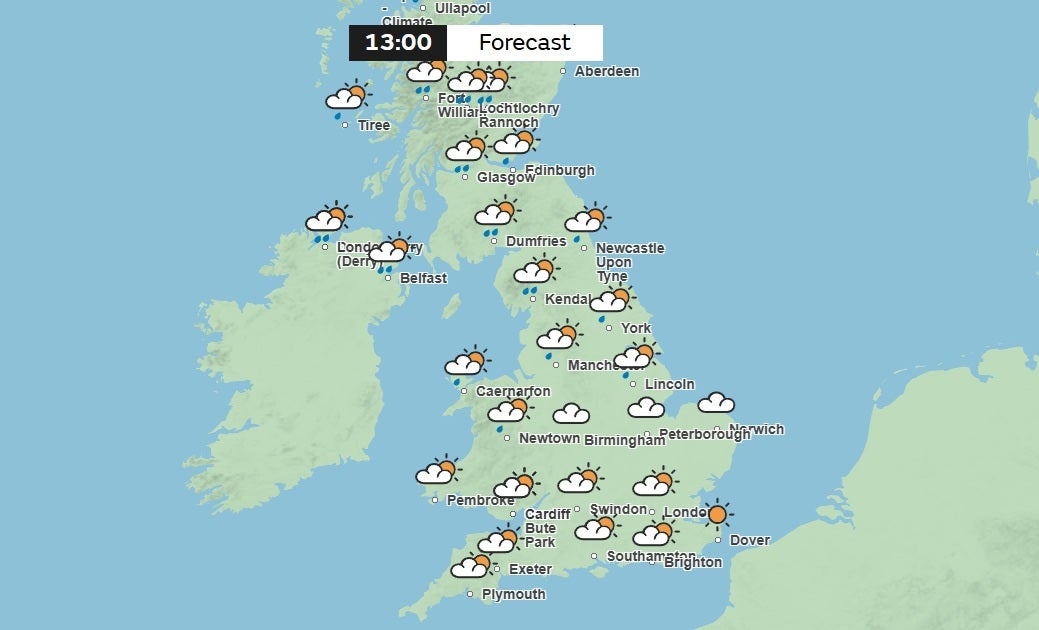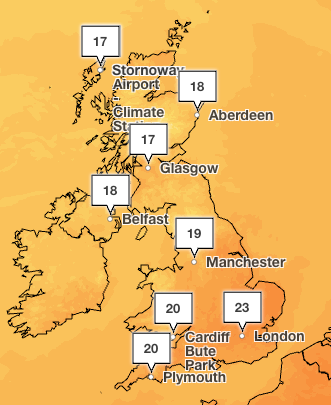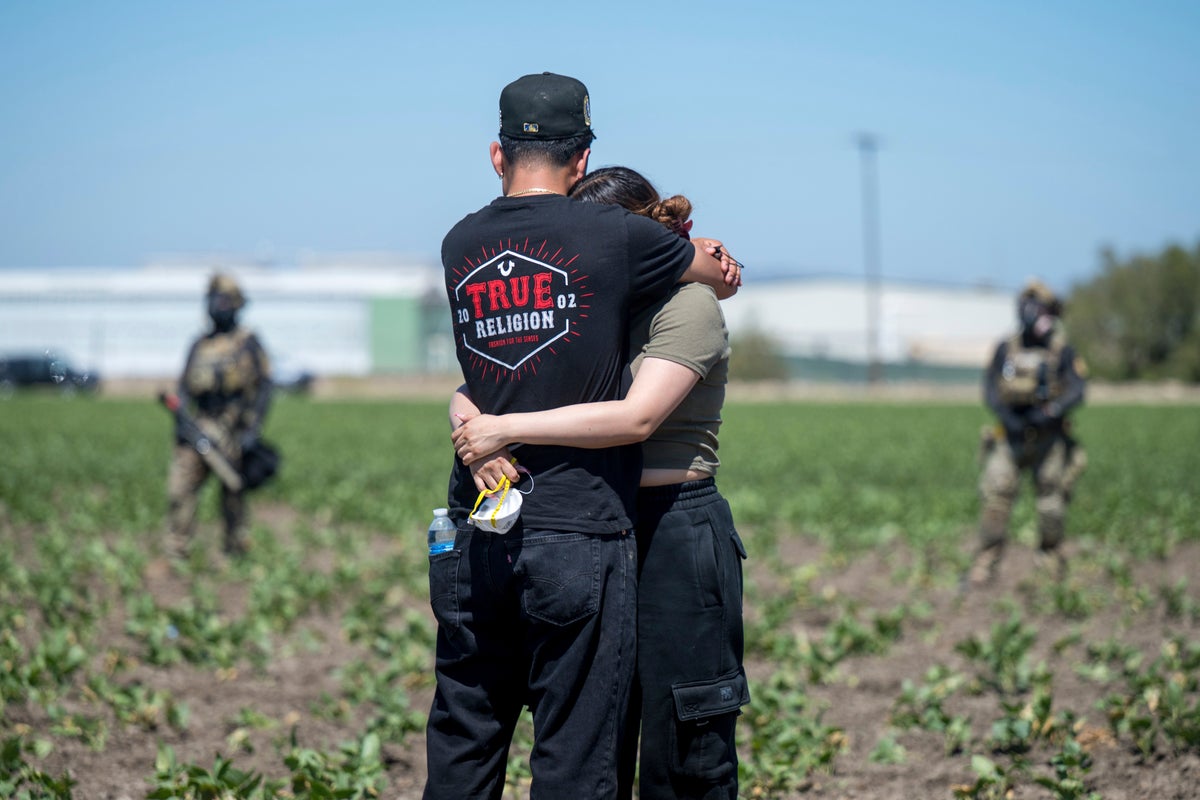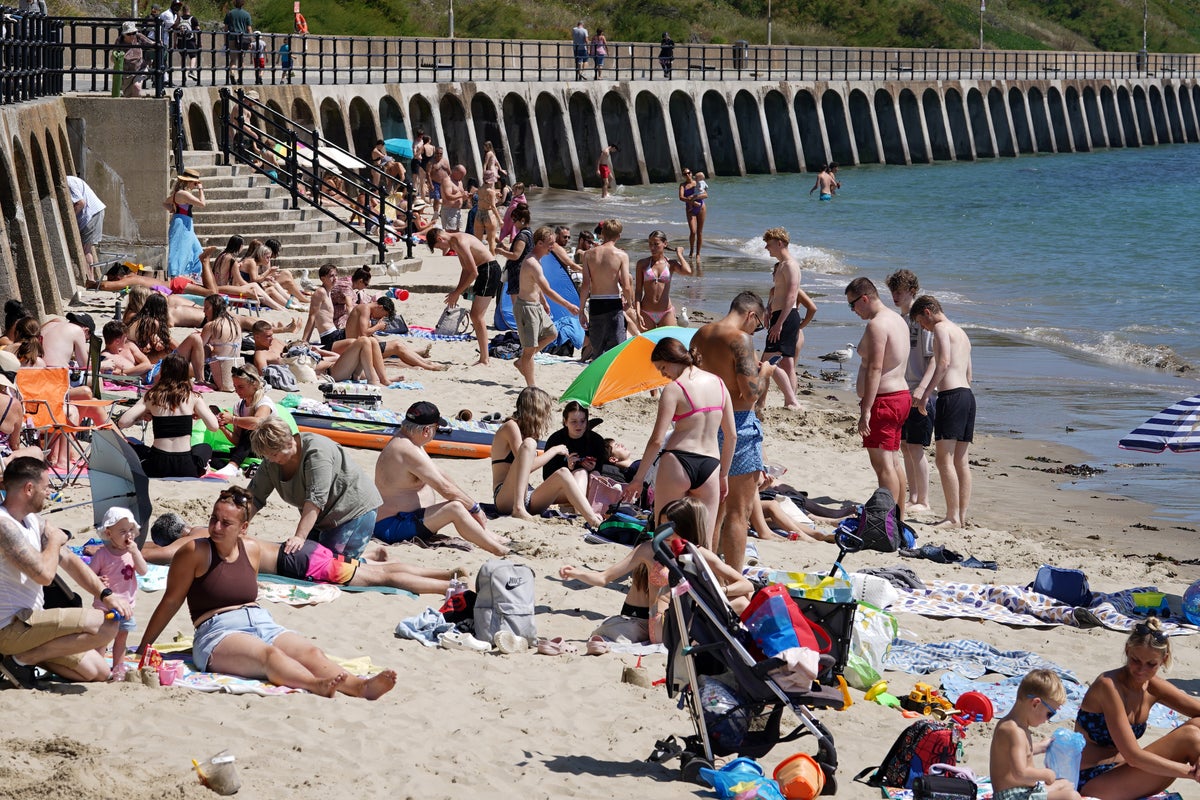As the UK indulges in a balmy weekend of barbecues and paddling pools, there may seem no end to the current third heatwave of the year.
But forecasters are suggesting that the weather could soon shift to more cooler temperatures.
The Met Office is predicting that the UK will see highs of just 23C degrees in London and 18C in Newcastle on Tuesday.
It will following a weekend of searing heat for many, with the mercury reaching 33C in Ross on Wye on Saturday.
The Met Office outlook states: “Turning more unsettled next week with heavy showers and thunderstorms at times. Hot in the east on Monday, otherwise temperatures dropping closer to the seasonal average.”
On Tuesday, rainfall is expected in Wales, the North West and North East of England. Heavy rainfall is forecast for Northern Ireland and Scotland. Temperatures are not likely to go over 25C, with northern England expected to see the coolest conditions.

The cooler weather will continue in the following days according to the weather agency’s long range weather forecast.
The end of the heatwave may come as a welcome relief to many after the scorching weather resulted in UK Health Security Agency (UKHSA) and the Met Office issuing an amber heat health alert for six regions from Friday to Monday.
An amber alert means significant impacts are expected or those aged 65 and over or with health conditions, and health and social care services are likely to face increased demand.
The Met Office defines a heatwave as “an extended period of hot weather relative to the expected conditions of the area at that time of year, which may be accompanied by high humidity”.
In the UK, hot weather can only be classed as a heatwave if it meets a daily maximum temperature consistently for three days in a row.

This threshold temperature varies across different parts of the UK.
In London, temperatures need to hit 28C for it to be considered a heatwave, but outside the capital in the north of England and Scotland hot weather can be considered a heatwave if it hits 25C.
But research shows climate change is making these extreme weather events more likely.
A scientific study by the Met Office into the Summer 2018 heatwave in the UK showed that the likelihood of the UK experiencing a summer as hot or hotter than 2018 is a little over 1 in 10.
A new record-high temperature for the UK of 40.3C was recorded at Coningsby in Lincolnshire on the July 19 2022, along with new records for Scotland on the July 19 and Wales on the July 18.



